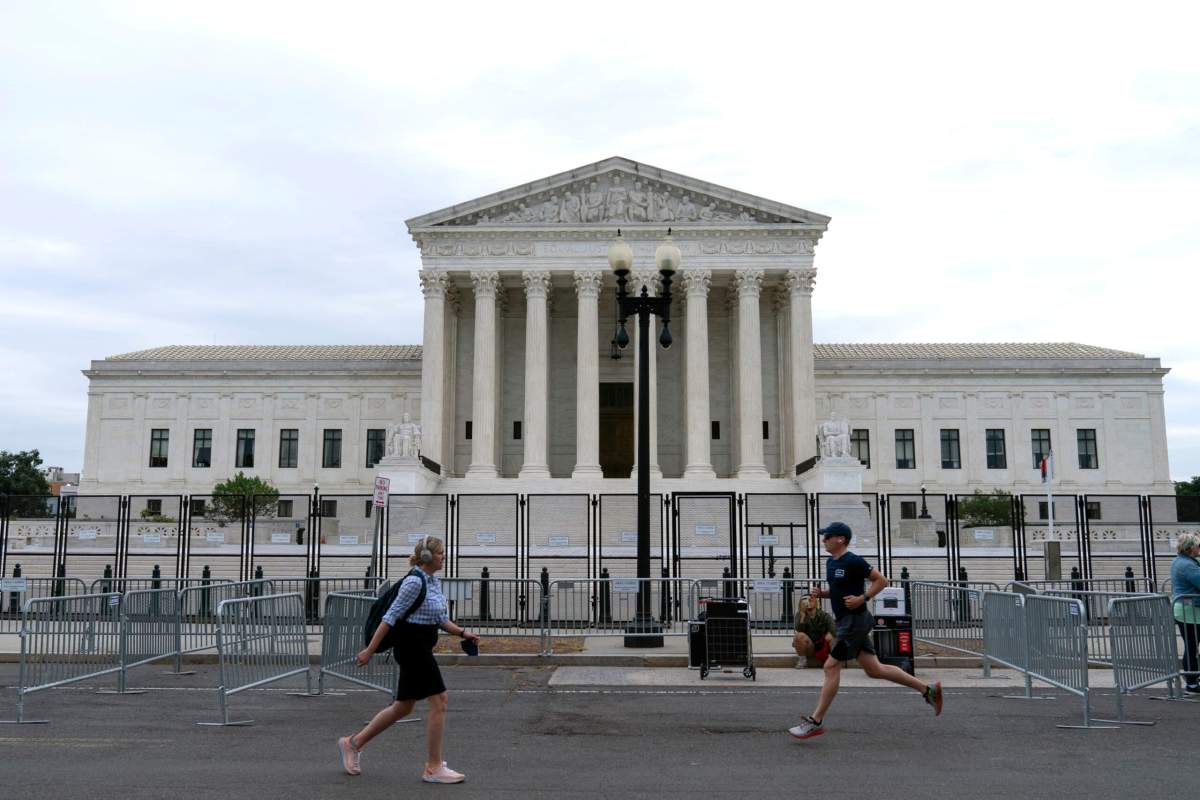In one of a series of opinions favoring “religious freedom,” the US Supreme Court ruled on June 21 in Carson v. Makin that a state program in Maine providing tuition assistance to parents living in towns without public secondary schools may not deny assistance to parents who chose to send their children to religious schools.
Chief Justice John Roberts, writing for six members of the court, found no real distinction between this case and a 2020 decision, Espinoza v. Montana Department of Revenue, in which the court held that the exclusion of religious schools from a state scholarship program violated the Free Exercise Clause of the First Amendment. But dissenters from the 6-3 decision argued that imposing a requirement for the state to pay religious schools to provide religious instruction to students violates the Establishment Clause of the same amendment.
Maine is so thinly populated over a large geographical expanse that only about half of its towns have enough students to maintain their own public secondary schools. In order to satisfy the state constitution’s requirement that every child be provided with an “opportunity to receive the benefits of a free public education,” the state established a program to provide tuition assistance to parents living in towns lacking such schools, where the towns had not made their own arrangements for the children to attend public schools in a nearby town. The tuition can be used, without any geographical restrictions, to send the children to public or private schools inside or outside the state that meet accreditation standards. If a school was accredited or on an approved list maintained by the state’s education department, the state would pay the money directly to the school upon application by the parents. The tuition assistance is capped at an amount that falls short of covering all expenses, however.
When the program was first established, any accredited school could participate, and during the 1979-80 school year, more than 200 Maine students received tuition assistance to attend religious schools. But in 1981 the legislature added a requirement that payment could only go to “a nonsectarian school in accordance with the First Amendment of the United States Constitution.” The reference to the First Amendment is an allusion to the Establishment Clause. At that time, Supreme Court precedents generally forbade the government from providing direct payments in support of religious education, as an impermissible funding of religious activities by the government.
In 2002, however, the Supreme Court changed course in the case of Zelman v. Simmons-Harris, holding that a benefit program under which parents could “direct government aid to religious schools wholly as a result of their own genuine and independent private choice” did not violate the Establishment Clause. Subsequent proposals to remove the “nonsectarian requirement” from Maine’s law failed to pass the state legislature. In 2018, two sets of parents sued the state when it refused to pay tuition for their children at religious schools. The district court and the US Court of Appeals for the First Circuit upheld Maine’s “nonsectarian requirement,” even though in 2020 the court had struck down a similar requirement under a Montana scholarship program.
Chief Justice Roberts’ opinion for the court states that the court’s recent precedents involving state government benefits that go to religious schools govern this case, rejecting attempts by the First Circuit and the dissenting justices (Stephen Breyer, Sonia Sotomayor, and Elena Kagan) to distinguish those cases. The general approach of the court has been to say that when a general benefit program specifically excludes otherwise qualified beneficiaries because they are religious, it is violating the Free Exercise Clause unless that government has a compelling reason to make such an exclusion. Roberts insisted that the “unremarkable” principles in these recent decisions, especially the Espinoza case from Montana, “suffice to resolve this case,” finding no compelling justification for Maine’s “nonsectarian requirement.”
Citing earlier decisions by the court, Justice Breyer argued that the decision in this case was taking things a step further. He pointed out the long-observed tension between the Establishment and Free Exercise Clause principles. “In applying these Clauses,” he wrote, “we have often said that ‘there is room for play in the joints’ between them. This doctrine reflects the fact that it may be difficult to determine in any particular case whether the Free Exercise Clause requires a state to fund the activities of a religious institution, or whether the Establishment Clause prohibits the State from doing so.” He claims that the court’s opinion “abandons this longstanding doctrine” by unduly emphasizing free exercise and paying scant regard to establishment issues.
As Breyer characterizes the decisions prior to this one, the court “has concluded that a state may, consistent with the Establishment Clause, provide funding to religious schools through a general public funding program if the ‘government aid reaches religious institutions only by way of the deliberate choices of individual aid recipients.’ But the key word is ‘may.’ We have never previously held what the court holds today, namely, that a state must (not may) use state funds to pay for religious education as part of a tuition program designed to ensure the provision of free statewide public education.” Breyer emphasizes that Maine’s goal is to provide nonsectarian education for every child in the state, and that the exclusion of sectarian schools from the program is consistent with this overriding goal.
He also noted that one important purpose of the First Amendment religion clauses is to avoid embroiling the state government in religious strife. Referring to the religious schools to which the plaintiffs were sending their children, he wrote: “Bangor Christian and Temple Academy, for example, have admissions policies that allow them to deny enrollment to students based on gender, gender identity, sexual orientation, and religion, and both schools require their teachers to be Born Again Christians. Legislators did not want Maine taxpayers to pay for these religiously based practices — practices not universally endorsed by all citizens of the State — for fear that doing so would cause a significant number of Maine citizens discomfort or displeasure.” Maine is one of the many states that prohibits sexual orientation discrimination by their schools, a prohibition from which religious schools in the state are exempt.
“Nothing in our Free Exercise Clause cases compels Maine to provide tuition aid to private schools that will use the funds to provide a religious education,” he wrote, but one must observe that he was a dissenter in the court’s recent cases upon which Roberts relied in his opinion for the court, and so Breyer has been making this argument, unsuccessfully, all along. His view is that Maine would not be violating the Constitution if the state government decided to repeal the exclusion, but that the court is violating the Constitution by imposing a duty to do so.
In her separate dissent, Justice Sotomayor observed that “the court continues to dismantle the wall of separation between church and state that the Framers fought to build.” She picked up on Breyer’s reference to the discriminatory policies of religious schools, writing: “From a practical perspective, today’s decision directs the State of Maine (and, by extension, its taxpaying citizens) to subsidize institutions that undisputedly engage in religious instruction. In addition, while purporting to protect against discrimination of one kind, the court requires Maine to fund what many of its citizens believe to be discrimination of other kinds,” referring to Breyer’s statement summarizing Bangor Christian Schools’ and Temple Academy’s policies denying enrollment to students based on gender identity, sexual orientation, and religion. “The upshot is that Maine must choose between giving subsidies to its residents or refraining from financing religious teaching and practices.”
“What a difference five years makes,” she concluded, referring to a 2017 case in which she had dissented from a ruling that a Christian church-affiliated school was constitutionally entitled to share in a state benefits program subsidizing certain construction projects. “Today the court leads us to a place where separation of church and state becomes a constitutional violation. If a state cannot offer subsidies to its citizens without being required to fund religious exercise, any State that values its historic antiestablishment interests more than this court does will have to curtail the support it offers to its citizens. With growing concern for where this court will lead us next, I respectfully dissent.”


































